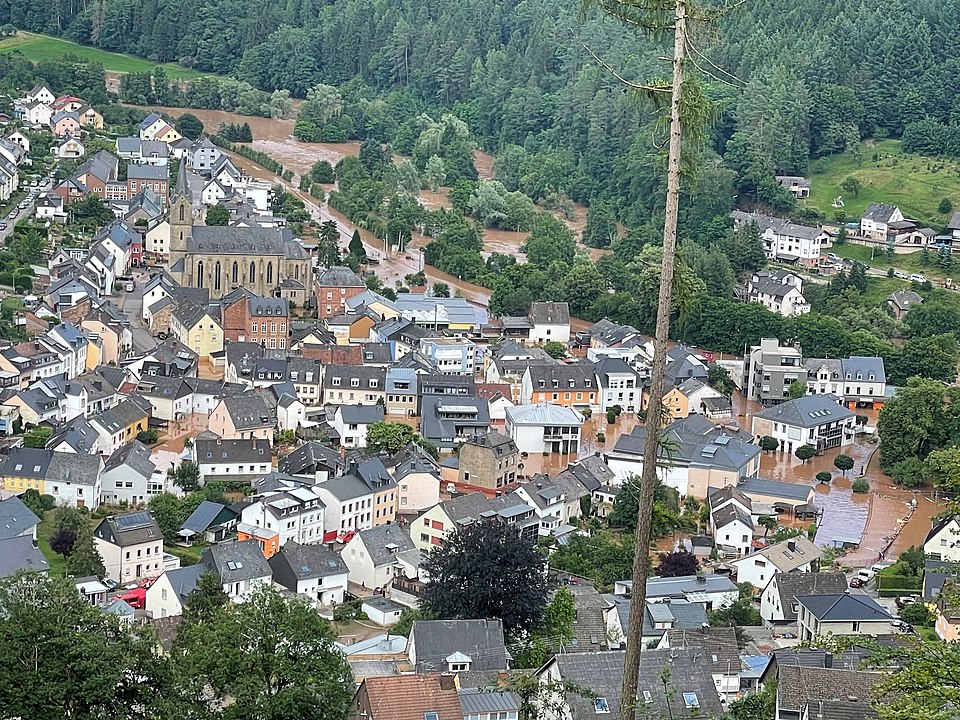
By Anders Lorenzen
Germany and Belgium were last week hit by a devastating extreme weather event killing over 200 people when three month’s worth of rainfall fell in just 24 hours.
The neighbouring countries of the Netherlands, Switzerland and Luxembourg have also been impacted, but Germany is by far the worst impacted country.
German Chancellor Angela Merkel has directly blamed climate change and as she visited the trail of devastation left behind at flood sites said Germany must pick up the pace with which it is tackling the impact of the climate crisis. Scientists have said that this extreme weather event bears the hallmark of climate change.
A trail of devastation
In Germany and Belgium, the severe flooding caused by the torrential rainfall turned streams and streets into raging torrents of water, sweeping away cars and causing houses to collapse. Storms across parts of western Europe made rivers and reservoirs burst their banks, triggering flash flooding overnight as saturated soils could not absorb any more water.
In one of the worst impacted German villages, Schuld, several homes collapsed. In Eifel, a volcanic region of rolling hills and small villages, rescue operations were delayed by blocked roads and internet and phone outages, and the devastating aftermath photos resembled a warzone as some villages were reduced to rubble. Once rescue operations finally got underway, pictures showed people being rescued from the roofs of their houses with inflatable boats and helicopters.In Belgium, the Vesdre River spilt over its banks and sent water churning through the streets of Pepinster near Liege with the latter flooding as the nearby Neuse River burst its banks.
Climate change to blame?
Whilst the scale of the impact and the economic damage of this event is not yet known, this is the most deadly extreme weather event that has hit the region, and many have joined Merkel in pointing to the elephant in the room; climate change. The theme of how aggressively to tackle climate change may well play a key role in deciding who the next Chancellor of Germany will be as Merkel’s term draws to a close at the end of this year.
These kinds of extreme weather events are of course precisely what climate scientists have predicted we can expect to see as our emissions continue to increase.
Stefan Rahmstorf, professor of ocean physics at the Potsdam Institute for Climate Impact Research said: ‘’One can state that such events are becoming more frequent due to global warming’’. He further explained that warmer air can absorb more water vapour which eventually falls as rain and the weakening of the summer circulation of the atmosphere, causing longer-lasting weather patterns such as heatwaves or continuous rain might also play a role. He added: ‘’The increase in heavy rain and decrease in days with weak rain is now also clearly seen in observational data, especially in the mid-northern latitudes which include Germany’.
Even before this event, Germany had faced criticism over its climate and energy policy. Whilst most western European countries have almost phased out coal, Germany is heavily reliant on the dirtiest and highest-emitting fossil fuel having not set the phase-out date before 2038 and had even planned to build a new coal mine. Germany became extra reliant on coal after deciding to decommission its entire nuclear fleet, which delivered low-carbon energy, by 2022.
Categories: climate change, Europe, impacts, Weather
10 replies »